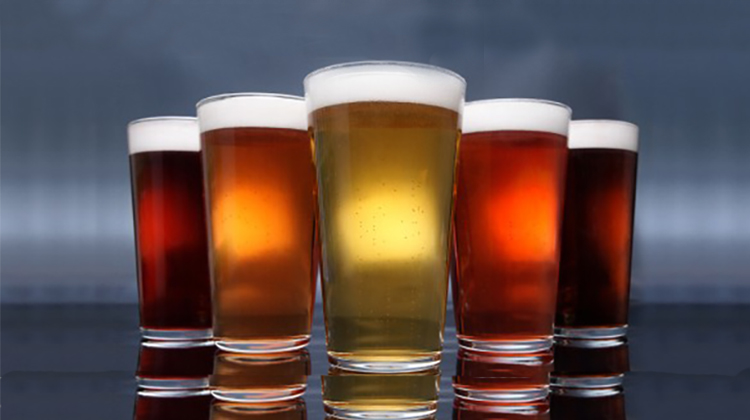Minors can get booze online easily, fast and cheap

The internet has broken down may barriers including those that stand between minors and alcohol. Buy now pay later services are also removing monetary barriers to obtaining booze.
Public health researchers examined the sales, marketing and delivery practices of the 65 most popular online alcohol retailers in Australia, and the easy access to liquor – for anybody willing to buy it – shocked them.
69 per cent of websites would leave alcohol unattended at an address without having verified the purchaser’s age; 12 per cent offered delivery within two hours; 13.8 per cent allowed customers to purchase alcohol through a “buy now, pay later” scheme; about 20 per cent offered a 750mL bottle of wine for under $5; 81.5 per cent offered discounts for buying more, and there was no requirement for delivery drivers to hold Responsible Service of Alcohol (RSA) certification.
The findings should indicate tougher laws for online alcohol sales are needed to prevent under-18s and people with an alcohol dependency from buying liquor at the touch of a button.
The study also found that an overwhelming majority of the online alcohol retailers, 89.2 per cent, offered visitors the chance to join their email list to receive discounts and promotions.
Drug and Alcohol Review published the research, conducted in mid-2019, this month.
Study co-author and UNSW Master of Public Health graduate Stephanie Colbert said that regulation had fallen behind the rapid growth in online alcohol sales in Australia.
“This is creating new problems around minors accessing alcohol, the sale of alcohol to intoxicated persons and easy access to cheap alcohol – from $2.88 for a 750mL bottle of wine, which is cheaper than a cup of coffee,” Ms Colbert said.
“The liquor industry recognises they can get away with more online: a recent industry report about online alcohol sales stated, ‘Unlike many liquor related industries, the Online Beer, Wine and Liquor Sales industry operates under a low level of regulation and policy.’"
Tougher standards required
Co-author Professor Robyn Richmond, of the UNSW School of Public Health and Community Medicine, said the community expected that online alcohol delivery services were subject to the same stringent standards as other modes of alcohol supply.
“Many people would be shocked to find out that this is simply not the case and that’s why, based on our findings, we call for online standards to be just as tough as when you walk into a pub or a bottle shop,” Prof Richmond said.
“There’s a misconception that a teenager needs to steal their parent’s credit card to make the purchase, but they can just use PayPal,” she said.
“Even if you type in the birth year of a minor before making a purchase on these websites, you can just go back and enter an adult’s birth year. There’s no way for them to actually check.”
No money, no problem
Ms Colbert said she was surprised that nine of the 65 websites she examined, 13.8 per cent, enabled customers to buy alcohol through “buy now, pay later” schemes such as Afterpay or Zip Pay.
“These services are not regulated under the National Credit Code, so the usual consumer protections and responsible lending obligations do not apply,” she said.
“These services make it so easy to buy alcohol by reducing the upfront cost to a fraction of the total and combined with convenient home delivery of an addictive substance, this is alarming.
“Costs are similar to physical bottle shops and delivery doesn’t add much,” she said.
“More than half of the retailers in our sample offered free or discounted delivery if customers purchased over a specified threshold.”
“The point of delivery is the only chance for face-to-face age verification in an online sale; therefore, age verification at delivery should be mandatory for all online alcohol orders to meet the same minimum RSA standards as physical liquor stores and prevent sales to minors,” Ms Colbert said
Ms Colbert said Retail Drinks Australia’s self-regulatory code, introduced to address problems with online alcohol sales and home delivery, did little to allay her concerns about risks including minors having access to unattended alcohol.
“Retail Drinks Australia (RDA) claims they randomly audit signatories’ practices to gauge compliance, but how often they do this is unspecified – likely, it’s rare,” she said.
“Even if the RDA finds that a signatory company breached the code, the RDA just says they will contact the company and ask them to comply.
“The code stipulates signatories may be removed temporarily or permanently from the register only after repeated failure to comply. So, there are no real consequences.”
Ms Colbert registered her contact details with various websites for the purposes of the study and was surprised at how aggressive the retailers’ promotion and discounting strategies were to entice shoppers and retain their custom.
She said her limited experience with the websites was unlikely to reflect the full scale of promotion and discounting an average user would experience, but nonetheless such resource intensive sales tactics were a major concern.
“The websites often required my email address and phone number in order to review the online checkout and consider payment and delivery options,” Ms Colbert said.
“Once they had my details, I received innumerable targeted promotions and discounts via email and persistent, repeated phone calls – since I completed the study in June, I’ve received about a dozen calls from several companies – the most recent was a couple of days ago.
“Even when I told them I was busy at work they promised to call me back after work. It’s very aggressive marketing. I’ve never bought anything from them!”
Image by Czarina Allegre under flicr cc attribution license